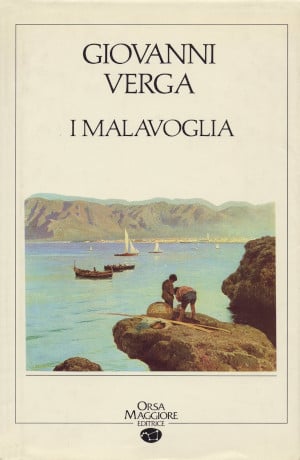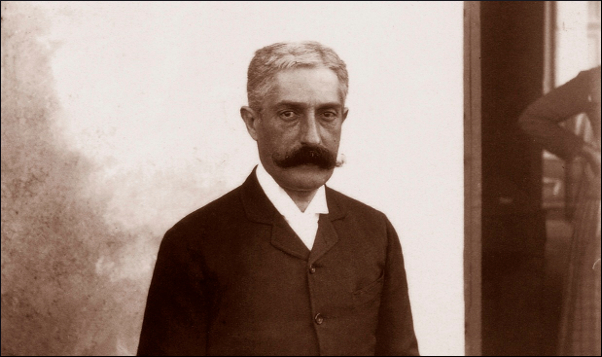
- I Malavoglia
- Published by: N/A
- Level: Intermediate
- First Published in: 1881
The novel is set in Aci Trezza, in Catania, a little town by the sea, and its events occur during Italy’s unification, a historical moment that saw the irruption of modernity in rural life. This transformation is evoked through the decadence of a poor Sicilian family of fishermen, the Malavoglias.
I Malavoglia is a novel published in 1881 by Giovanni Verga, one of the most important figures in the Italian “verism” movement, which attempted to depict humanity’s condition without embellishments, somewhat like “realism” in France at the same time. The narrative is set in Aci Trezza, in Catania, a little town by the sea, and its events occur during Italy’s unification, a historical moment that saw the irruption of modernity in rural life. This transformation is evoked through the decadence of a poor Sicilian family of fishermen, the Malavoglias. They hope to follow progress and improve their economic situation, so they entrust their future to “provvidenza” (or “providence,” also the name of the Malavoglia's little ship). When the boat is wrecked, one of the men dies, which ignites a series of disgraces endured by the Malavoglias, which pushes them to the edge of economic and social collapse.
"Giovanni Verga was one of the most important figures in the Italian 'verism' movement, which attempted to depict humanity’s condition without embellishments, somewhat like 'realism' in France at the same time."
Throughout this decline, Verga portrays the common vices people fall prey to when they attempt to climb the social ranks: avidity, ambition, and egotism. In the author’s pessimistic view, the Malavoglias are “dell'ostrica” (of the oyster). People are linked “naturally” to their birth conditions, and as soon as they try to rise above their status, values, and/or ideals, they fall into disgrace. Only Alessi, who preserves the old values, manages to save himself and the honor of his family, becoming the new patriarch of the Malavoglias.
The entire novel takes place in Sicily. We can read about typical past customs, expressed through language and the name of things: “telaio” (loom), “ordito” (warp), and “arcolaio” (wool-winder) are terms from the textile industry (which was dominated by women). There is also some maritime jargon (mostly used by men, whose main activity was fishing), like “amarrare.” At the same time, proverbs express how characters think. Most of them are repeated by the patriarchal figure of Padron ‘Ntoni. For example, “Bocca amara sputa fiele” (A bitter mouth spits bile), said when someone is angry and is spouting foul language from his or her mouth. Another proverb is: “A donna alla finestra non far festa” (Don't contemplate women on the windows). Presumably, such women would already be “contemplated” by many men (an example of the strict concepts of honor southern people held regarding women).

This novel depicts the “Sicilianity” of insular provincial towns in the 19th century, as well as the sort of people who could still be found in Italy until 20 or 30 years ago. Some characters are given surnames, like “Piedipalpera,” or “Mangiacarrube,” and “La Longa.” This is typical of southern regions, where people are named after specific personal characteristics, physical or otherwise. This tradition was called “‘ngiuria” (ingiuria), and it started as a way to distinguish between families that shared a surname. All names, moreover, are preceded by an appellative, like “maestro,” “compare,” “don,” “padron,” conveying the person’s social role.
I Malavoglia is the first novel of a series dedicated to “I vinti” (the losers). There were five planned novels, but the author only got to finish 2 and a half of them: this one, Mastro Don Gesualdo, and the opening chapter of La Duchesa di Leyra. Today, Verga is considered one of the most important Italian authors ever, and I Malavoglia was liberally adapted by director Luchino Visconti, in his celebrated 1948 neorealist film La Terra Trema.
